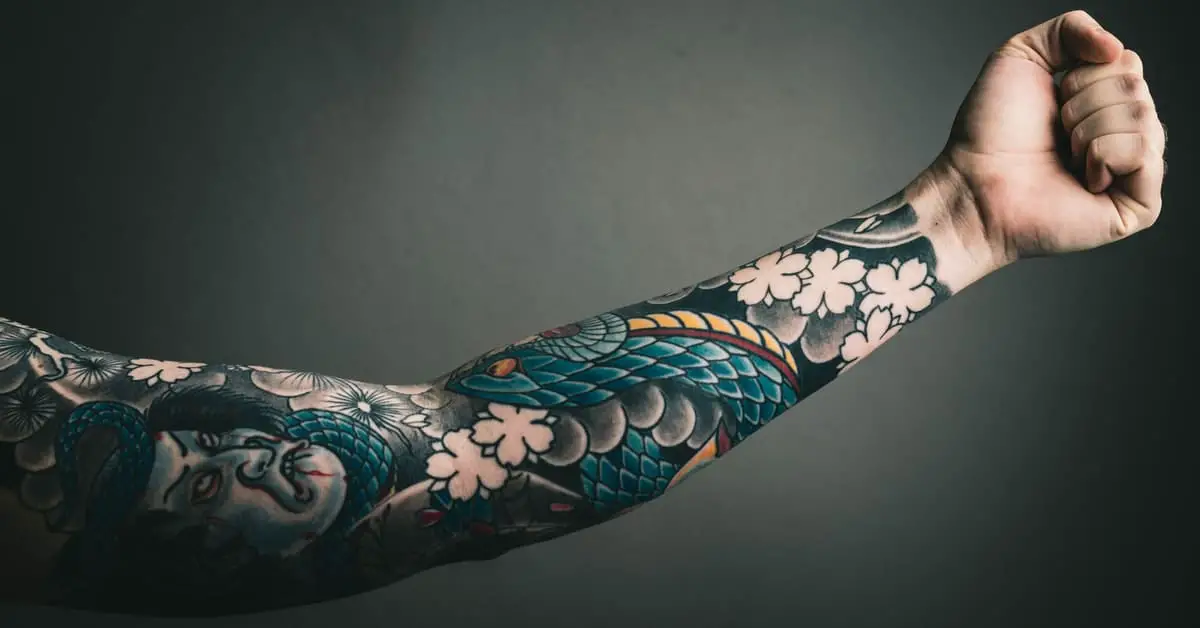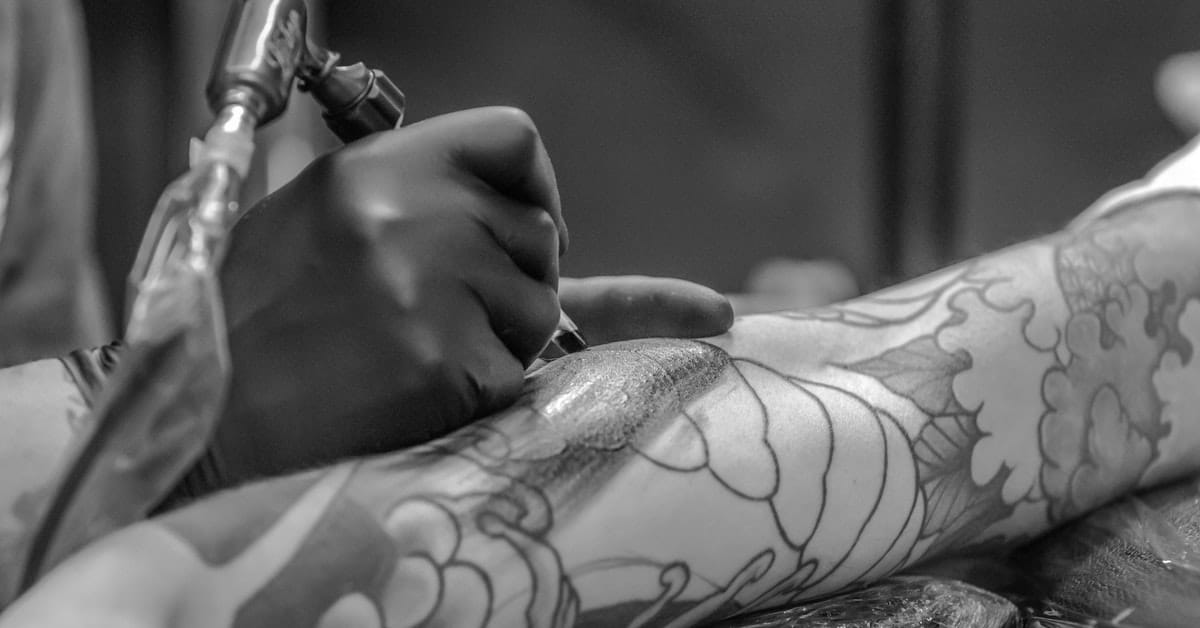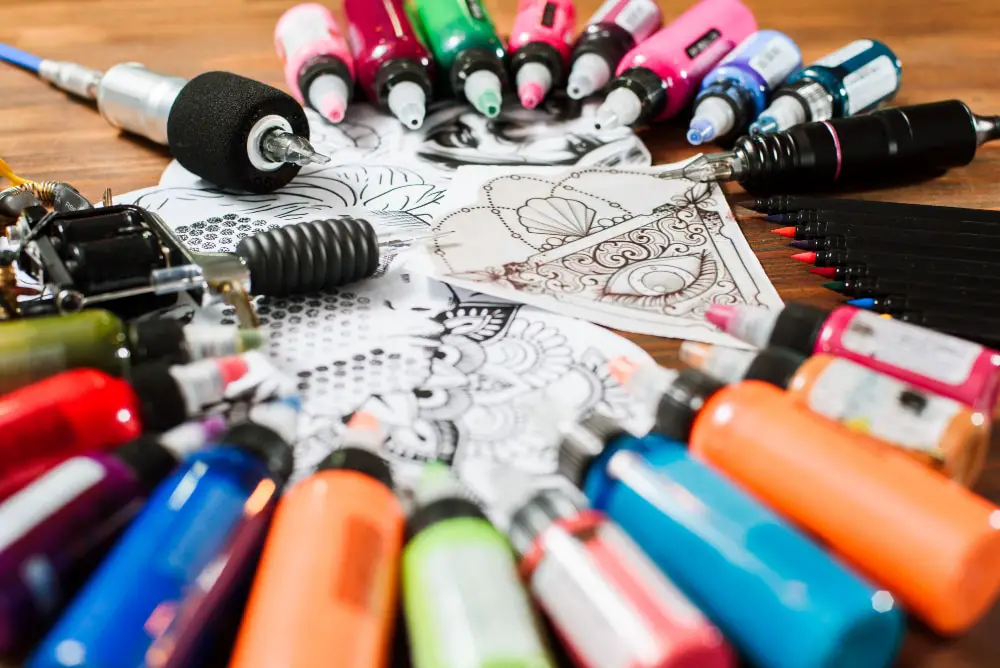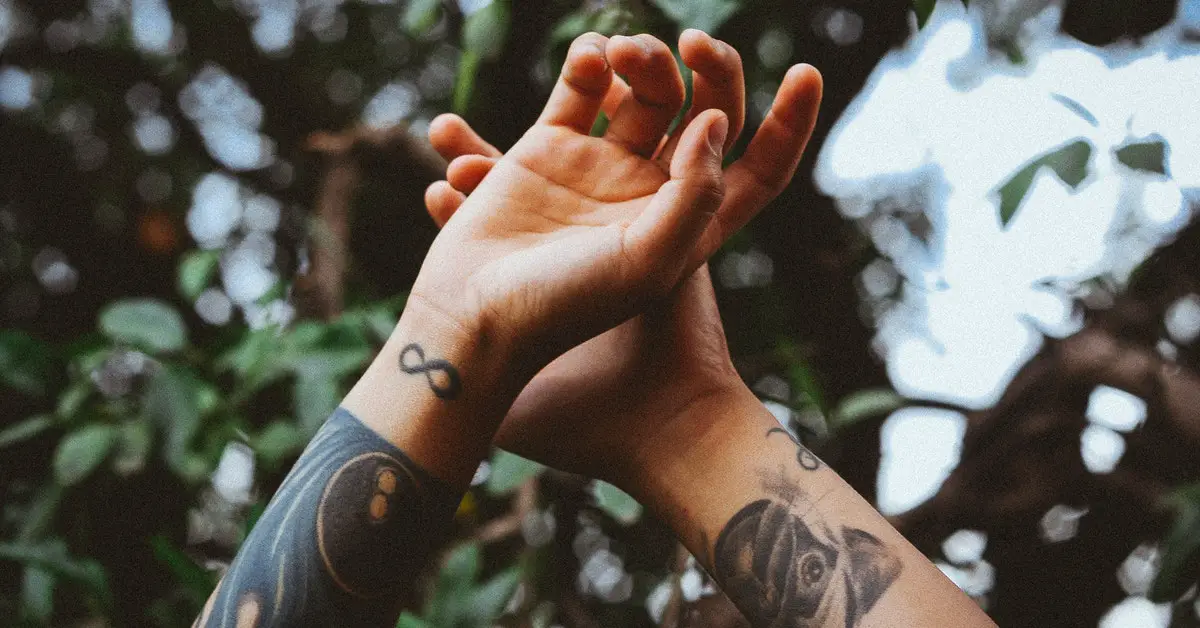How long do tattoos take to heal? The answer depends on your tattoo aftercare routine, the size of the tattoo, and the location. On average, your tattoo will be perfect in three to four weeks.
Your skin art reflects you. It exhibits a part of your personality. Tattoos aren’t only a mere decoration. It ruminates a slice of your inner self. The way your tattoo looks dramatically matters. How your tattoo heals impacts how it’ll look. Thus, tattoo aftercare is a must.
So, How Long Do Tattoos Take to Heal?
It depends on your tattoo aftercare routine, the size of the tattoo, and the location.
There’s no rush. If you want your skin art to flaunt a vibrant appeal, take the time to heal it. Do the necessary steps to make sure your tattoo heals properly. Such art is embedded into your skin; It will be a part of you forever. Thus, it is only best to take good care of it during and after the healing process.
The healing process sometimes depends on the tattoo’s size and its location. Body parts such as the arms, calves, and chest are easy and fast to heal. Other parts such as the armpits, thighs, and stomach heal longer. The healing process may differ, but the tattoo healing stages could be similar.

Tattoo Healing Stages
The tattoo healing process is divided into four stages. These stages are the typical order of the person’s experience after getting the tattoo. If it’s your first time getting a tattoo, here’s what to expect:
Tattoo Healing Week 1 – Oozing and Redness
Stage one is when the tattoo is fresh. You may feel some oozing sensations, and the skin will appear red and a bit inflamed. After the tattoo session, the artist will cover your new ink with a bandage.
You will notice that fluids come out of your tattoo. Don’t be alarmed because it’s normal. Tattoo artists call this “weeping.”
Weeping will last for a week. However, if your new tattoo still weeps after weeks, it’s a sign to see a doctor. Some underlying complications might be happening that need immediate medical care.
On a brighter note, if everything seems fine, be ready for the next stage. It may not be painful, but it sure is not very enjoyable. Stage two will bring discomfort and disturbing sensations.
Tattoo Healing Week 2 – Itching

The second stage is quite annoying. It is when your tattoo starts to dry, and the skin starts to itch (it will feel ridiculously itchy). It happens to all wounds, and a tattoo is essentially considered a wound.
When your tattoo starts to flake and itch, never scratch it. It will ruin the tattoo or, worse, create another wound. Instead, look for remedies to ease the itch.
Moisturizing the skin is one of the effective remedies for itching. Apply lotion gently onto your new tattoo to alleviate the itch. If that doesn’t work, try numbing it with ice. Take medium-sized ice and wrap it in thin fabric. Then, place the ice on top of the tattoo. Do so until the surface feels numb.
If the itch is still unbearable, it is best to ask a doctor for an over-the-counter antihistamine. It is better to prevent than not being able to resist scratching. If you do so, your tattoo will start to peel at the wrong time.
Tattoo Healing Week 3 and 4 – Peeling
During the third and fourth weeks, the tattoo will begin to peel. It is a natural occurrence when the wound starts to heal. Peeling is a good sign that the tattoo is healing well. One important note, never try to peel it off yourself. Let the skin fall off on its own.
The tattoo typically appears dull, and the colors aren’t vibrant. This is due to another layer of skin that forms on top of the tattoo. It is a normal part of the healing stage. It will exfoliate in the next few days, and the vivid tattoo will reveal itself. Scratching it will cause permanent scarring. Thus, resist the strong urge to do so.
On the other hand, the redness should’ve subsided during the third and fourth weeks. If you notice your tattoo is still inflamed, it is an early sign of infection. It is recommended to seek medical attention.
Tattoo Healing 2nd to 6th Months – Fully Healing the Tattoo
At this stage, the tattoo will look healed. However, your tattoo aftercare does not stop here. To ensure your tattoo’s highest quality appearance for a long time, it is best to continue your aftercare routine.
Keeping your skin hydrated is one thing you can do. Then, protecting it against harmful UV rays is another thing. Applying SPF lotion will protect your tattoo from the sun’s radiation. Lastly, always keep your tattoo clean.
Six months can be quite too long just to heal a tattoo. It is the best process one can follow to ensure the tattoo heals fully and properly. But if you think you can’t wait that long, there are a few things you can do to heal your tattoo faster.
How to Reduce Tattoo Healing Time?

Of course! You are excited to see your tattoo fully healed. However, you can’t rush a wound to improve or heal. But what you can do is speed it up a little. Doing so takes an outright effort.
If you want to heal your tattoo faster, here are some free tricks and tips that you can follow:
Tips on Healing Tattoos Faster
Cover It Up
One thing that prolongs the healing time is sun exposure. If your tattoo is always bare under the sun, it can cause infections. Thus, the healing time will be much longer, challenging for some. The best thing you can do is cover it up when you are out and about. Make sure your new skin art is away from the sun’s rays.
Sunscreen, however, might be a good idea. The thing is, sunscreen contains elements that are not good for fresh wounds. Thus, it is only advised to use sunscreen when the tattoo is already healed.
The ideal thing to do is to cover it up. But make sure that your tattoo has enough room to breathe. Thus, after removing the initial bandage, just simply wear clothes that can cover the tattooed area.
Don’t Re-Bandage Your Tattoo
Bandaging the tattoo does protect your tattoo from harmful elements. On the other hand, it is only ideal right after the tattoo session. But once you take off the initial bandage, you will need your tattoo to air out.
Your fresh tattoo will need oxygen to heal faster. Additionally, the extra moisture it will produce due to the lack of oxygen will prolong the healing process. On top of that, it will trigger scabbing, which will diminish the visual quality of the tattoo.

Clean the Tattoo Regularly
Keeping a wound clean will heal it faster. The same goes for tattoos. Since they are considered wounds, cleaning them at least twice a day will heal them faster.
How to Clean Your New Tattoo?
- Use sterile lukewarm water.
- Avoid hot water, for it may open the pores and can cause the ink to draw inward.
- Make sure your hands are clean.
- Anti-bacterial soap is ideal for cleaning your hands.
- Splash a small amount of water onto the tattoo.
- Then, follow it up with fragrant-free and alcohol-free soap.
- After, gently pat the tattoo with a clean paper towel.
- Let it air dry.
- Lastly, apply organic gentle ointment/moisturizer.
Apply Fragrant-Free Ointment Daily
In the first few days, your tattoo artist will recommend products with lanolin, petroleum, etc. After a few days, it is best to switch to gentler ones. Thus, look for milder alternatives such as pure coconut oil. Fragrant-free and alcohol-free products are ideal. Using mild moisturizers will keep the skin hydrated and lessen the itch when the wound starts to scab.
Never Scratch the Tattoo
Never, ever scratch your tattoo! Just like any other wound, scabbing is common. It will itch when the tattoo scabs (you’ll have a strong desire to itch). You might be tempted to pick or scratch it. However, it will cause even more damage to your skin. As a result, the tattoo will be damaged and can promote permanent scarring.
Don’t Use Scented Products
Some products with pungent fragrances may cause negative reactions to tattoo ink. Since your tattoo is still considered an open wound, it is likely for your hygiene products to penetrate into the wound. Thus, if the ink is not compatible with the content of your soap, it may cause infection. Hence, making it longer for your tattoo to heal.
Don’t Soak the Tattoo in the Water
Going swimming at the beach or pool is not at all advisable. The water is not sterile, and it may cause skin complications. So, in the first two weeks after getting your tattoo, don’t swim. It may cause your tattoo not to heal properly. Hence, the longer your wait for your skin art to fully heal.
Signs Your Tattoo is Not Healing Properly
- There are sure-fire signs that your tattoo is not healing properly. It may be because of too much sun exposure or spontaneous scratching. However, if you notice these signs, it is important to look for a remedy before it gets worse.
- Experiencing fever or chills a few days after getting the tattoo.
- The inflammation or redness is longer than expected. As was mentioned, redness only occurs during the first week.
- Pus or fluid is oozing. If your tattoo still weeps fluid after two to three days, it means that it is infected. You will need to have it checked.
- One indication that you are allergic to ink is when your skin is puffing and the tattoo is raised.
- The itching is more than usual. Severe itching is another sign that you are allergic to tattoo ink.
- It is normal for the tattoo to scab. But when you notice that your tattoo is raised with stringent redness and distorted colors, it is a sign of scarring.
Once you experience at least one of these signs, it is vital to seek a medical expert. It may trigger a more complicated skin infection if you fail to resolve it. On a brighter note, tattoos aren’t always difficult to heal. With proper aftercare, your skin art will flaunt its bright colors and details when it heals. Moreover, your tattoo will last longer in your skin without changing or fading.

Conclusion – How Long Do Tattoos Take to Heal?
Skin art is more than just an embellishment. If your tattoo means something important or personal to you, it is only right to give it proper care. Your outright effort will reap the rewards later on. In the long run, the visual appeal of your tattoo will last you a lifetime.

